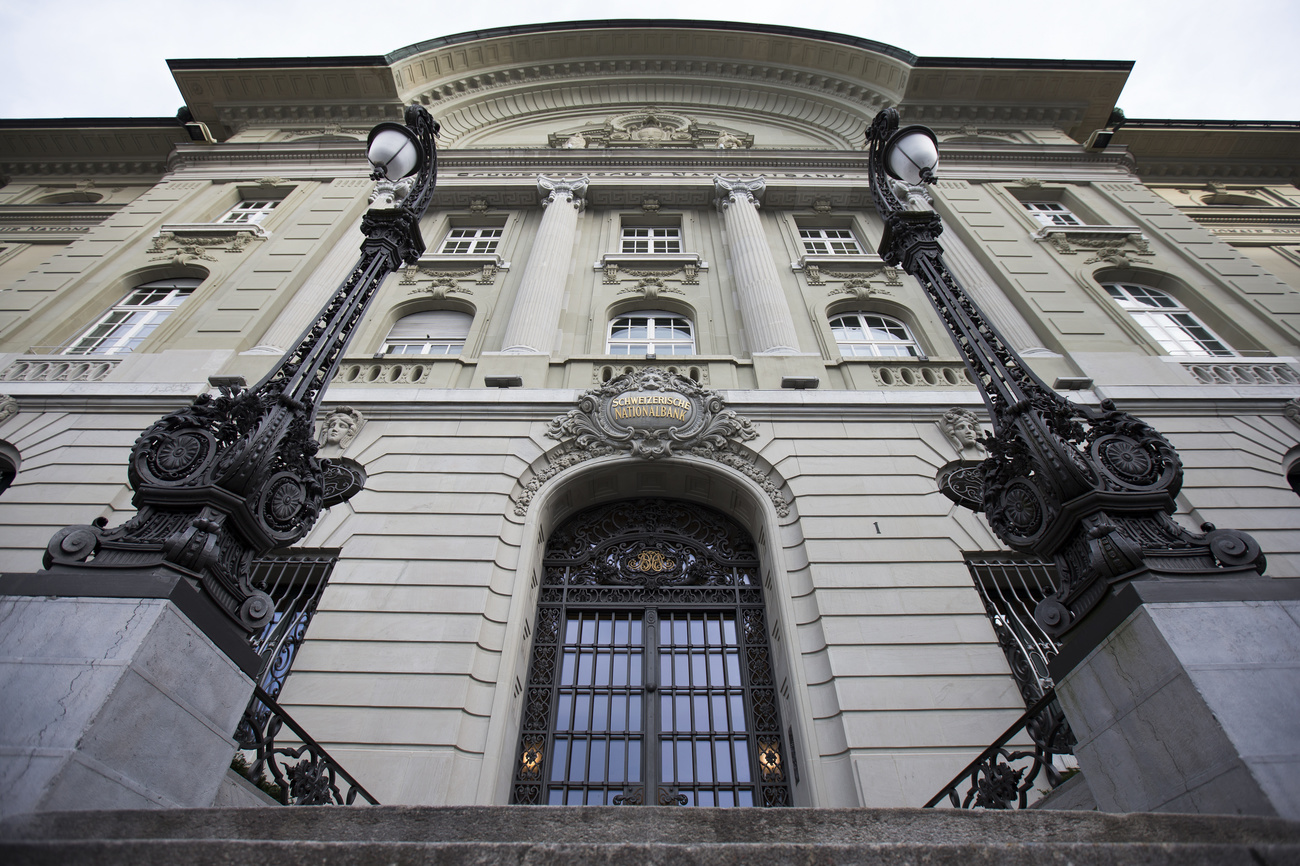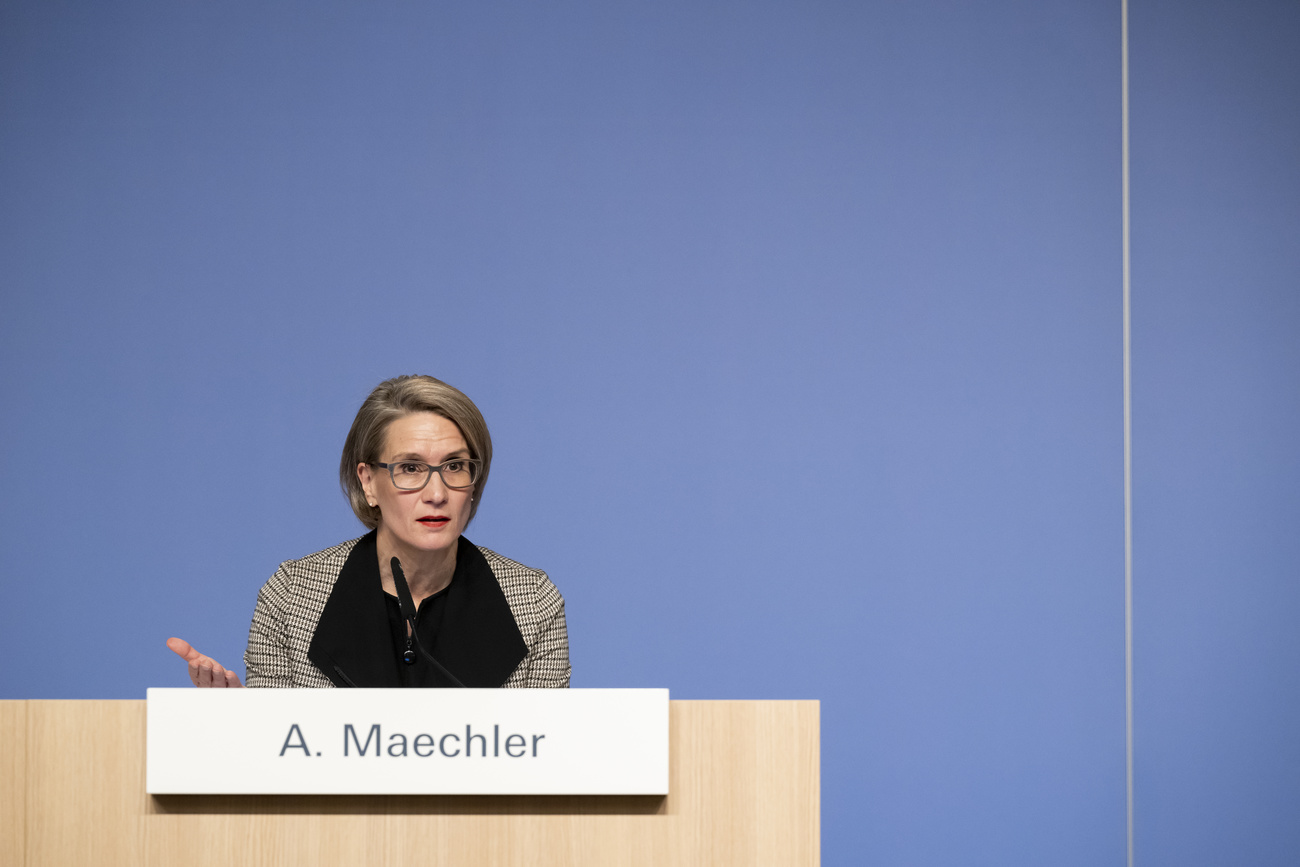
New York Federal Reserve’s Martin to be the next SNB’s rate-setter

Antoine Martin, an official at the New York Federal Reserve, will become the Swiss National Bank’s (SNB) newest interest-rate setter next year.
The government appointed the native of French-speaking Switzerland, who’s currently a financial-research adviser at the US institution, to assume his new post from January.
Martin will take on Andrea Maechler’s responsibilities running the SNB’s markets operations after her exit to join the Bank for International Settlements. Alternate board member Thomas Moser will continue to manage the department until he arrives.

More
Who will replace Andréa Maechler on the SNB’s board?
The new policymaker will be the only top SNB official not to come from a German-speaking region of Switzerland. His appointment is also the first external one to its senior echelon since Maechler joined the board in 2015.
“Thanks to his many years of Federal Reserve Bank work, Antoine Martin is familiar with the concerns of a central bank and has sound, practical experience in the field of monetary policy,” the government said Friday in a statement.
Money markets
Martin was born in 1969. He has spent his career in the US, having started out at the Kansas City Fed in 2001 before shifting to its New York counterpart four years later.

More
Who wields power at the Swiss central bank?
Now a veteran of the markets team at the New York Fed, much of his research focused on managing stability in money markets and the role of the market for repurchase agreements, or repo, in providing liquidity and implementing policy.
He joins at an eventful time for the Swiss central bank, which oversaw the forced takeover of Credit Suisse Group AG by rival UBS Group AG earlier this year. The SNB just paused interest-rate hiking on Thursday after 250 basis points of increases in borrowing costs since June 2022.
Martin is “somebody who wasn’t socialized within the SNB, but could build up experience within another central bank,” said Karsten Junius, chief economist at Bank Safra Sarasin Ltd. “With this appointment, the SNB approaches critics who say that it heaps too much internal thinking in its decision-making channels.”
He departs the Federal Reserve as it unwinds its massive balance sheet. It’s offloaded about $1 trillion of bond holdings since it began last year, with no sign of the kinds of strains in financial markets that spooked policymakers the last time they oversaw such a program.

More
Stablecoins explained
But markets could face more of a test as the process continues, potentially eating more into reserves.
The SNB highlighted Martin’s experience in its remarks on the appointment.
“His activities include leading research on monetary-policy implementation, developing improvements in payment and settlement systems to mitigate systemic risk, and analysing the potential implications of central bank digital currency,” it said in a statement.
Martin studied economics at the University of Lausanne, which is in the same canton of Vaud where he grew up in Switzerland, before then getting a doctorate at the University of Minnesota.
Outside appointment
All three rate-setters are now men. Institutions in Switzerland, which is constituted of four main language groups, often prioritize diversity on that basis. That can come at the expense of trying to achieve gender balance. Maechler remains the only female rate-setter in the SNB’s history.
The choice of a candidate outside the SNB may help defang local criticism that monetary policy is increasingly centred on President Thomas Jordan.
“I think it’s good that an external candidate was appointed,” says Yvan Lengwiler, finance professor at Basel University and member of the SNB Observatory, a group of academics usually critical of SNB’s leadership.
Echoing this sentiment, EFG Bank AG chief economist and Observatory member Stefan Gerlach added that “it’s also good for Switzerland’s government to have a choice between an internal and an external candidate when it comes to replacing Thomas Jordan.”
+Read more: calls for a more transparent Swiss National Bank
While Jordan’s term in office runs until 2027, it’s possible he retires before that. The remaining rate-setter is Vice President Martin Schlegel, who was appointed from within the central bank.

In compliance with the JTI standards
More: SWI swissinfo.ch certified by the Journalism Trust Initiative



























You can find an overview of ongoing debates with our journalists here . Please join us!
If you want to start a conversation about a topic raised in this article or want to report factual errors, email us at english@swissinfo.ch.